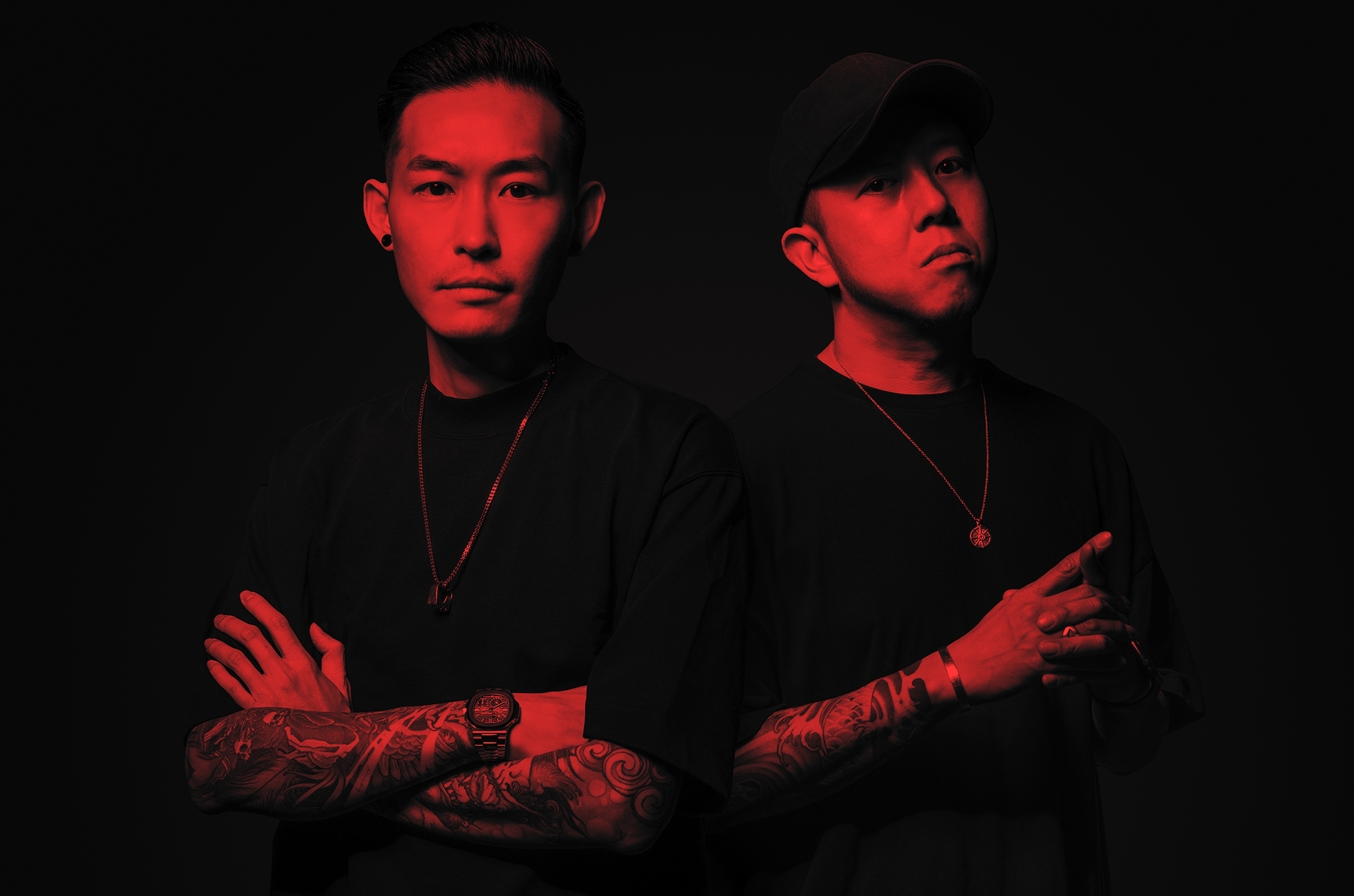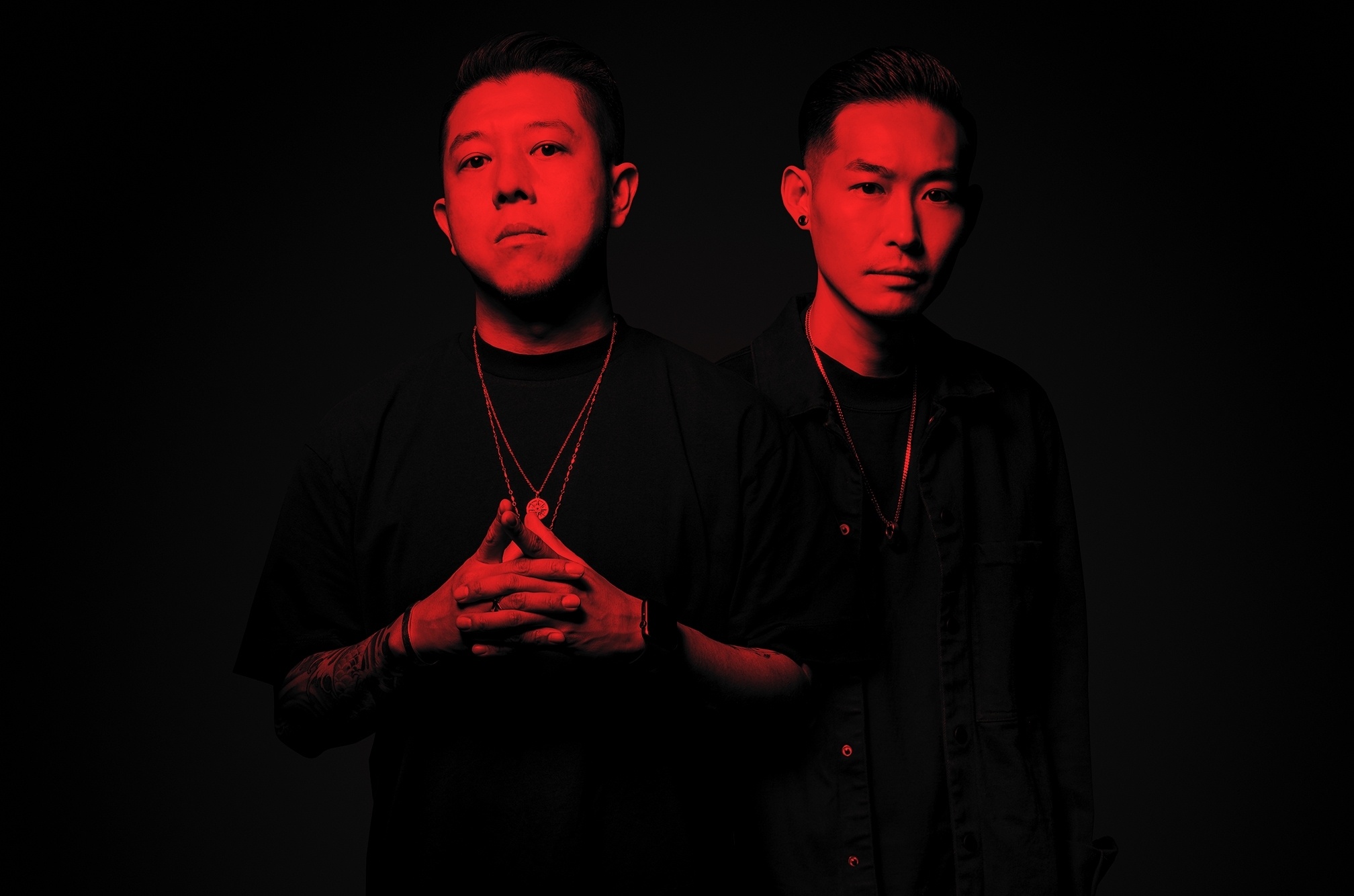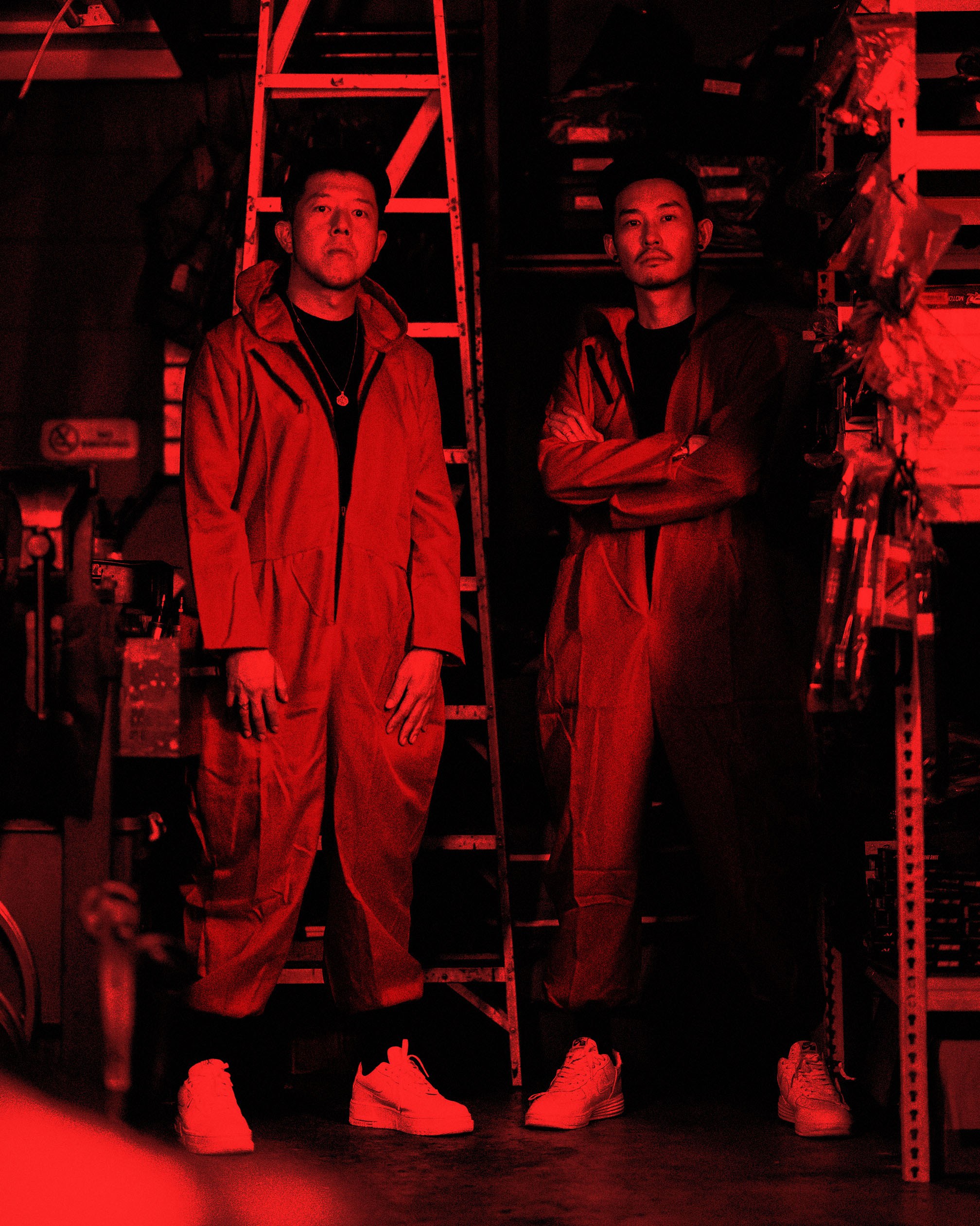 Features
Features
A tropical peninsular with a hard sound: How Bass Agents created a home for hardstyle in Malaysia
A genre that hides in the darkness of electronic music, with its heavy kicks & reverse bass — this is hardstyle
Within the many subgenres of electronic dance music, it’s hard to keep track of what’s what in today’s realm in the growing sphere of dance music. Some genres have gained popularity within the masses due to the rise in festivals as a worldwide phenomenon, but really the best-kept secrets exist within more underground sounds — hardstyle was one of those genres. Emerging in the Netherlands in the 90s, the genre peaked in popularity in the 2000s with its distinct hard kicks and reverse bass written at 140BPM and above, making hardstyle a genre hard to miss if heard.
Across Asia, Malaysia has seen hardstyle become one of its more popular genres — and we had the opportunity to speak to one of the pioneers of the hardstyle sound in Malaysia. Bass Agents are a homegrown name from Kuala Lumpur, which is no stranger to the sound if asked by any dance music aficionado in town, even within the Southeast Asia region. That said, the sound is not yet a popular genre in Asia, with only a few selects and Malaysia seems to be one of them that's really incubatibng the sound in the region. From curating shows in and outside of Malaysia to creating an alliance that focuses on Asia’s best hardstyle DJs called Asian Hardstyle Alliance, this duo is all about bringing the genre to new heights within the Asian region.
We spoke to Nick (Ganjaguru) and Hoong (Mr.Nasty) of Bass Agents to learn more about why this small tropical peninsular in Asia has such a great outreach for this genre and what they have been doing to pave the way for its popularity in Malaysia.
Why hardstyle?
Hardstyle is like a religion. Once you get into it, there’s no turning back. The fast pounding kicks and euphoric melodies are like no other. It gives you a natural high that any substance can’t replace. It’s hard to explain but hardstyle punters are a devoted bunch; that’s why hardstyle has a strong community around the world.
When did the genre first make its appearance in Malaysia? How did it come about and who paved the way for it?
We were the only DJs playing hard dance in KL in the early 2000s. At that time, we were still playing UK hard dance / hard house on vinyl and slowly integrating hardstyle (when it was still in its infancy) into our sets. It is safe to say we paved the way for Malaysia as we were the only DJs/organisers that were promoting hard events then. We used to throw a lot of parties at Barcode located at Philleo Damansara, then slowly progressing to our own nights taking over clubs around KL called Hardsequence. The biggest was at Ruums before it was turned to KL Live.
Malaysia seemingly has a big Hardstyle community when compared to other genres of electronic music. Where do you think this stemmed from?
We reckon Malaysians generally are well versed and up to date in dance music. One big factor could be that most students in KL who studied in Australia during the early to mid-2000s were exposed to hardstyle and the Melbourne shuffle. Upon graduation, most of them came back and brought back the music with them. Also, during that time, big local organisers featured a lot of hard acts in their lineup as well. One significant one was Recharge Global Gathering festival that happened in A’famosa back in 2005, where we were one of the local lineups featured in the main set among the internationals. At the same time, we actively toured around Malaysia yearly to promote the sound.
How would you describe the hardstyle scene in Asia? Is there a reason why it’s more prevalent in some regions and not at all in others?
We would say it is more prevalent in the Southeast Asian region. We can’t tell you exactly why but we are guessing that clubbers in this region are more open-minded and exposed to international dance music. It could also be the language used in the music as Southeast Asia are more receptive to English.
Are the Hardstyle sounds in Asia different from the Western Hemisphere? What is the main difference and similarities between the two?
In terms of production, the western hemisphere is generally more superior, and we’d like to think they had more exposure since young with better accessible tools. But there are more and more upcoming Asian artists that are on par or even better joining the scene today. Style-wise, Asia’s pretty similar but might contain their native language. For example, we like to inject Asian elements into our music (Asian instruments and vocals) to differentiate from the rest, but most of the time, it will get shunned by western labels because they don’t understand it.
Are there any labels in Asia that focus on the harder styles of dance? How do you compare this to being independent?
We don’t think there are any big hardstyle labels in Asia. Most artists in Asia will try to get into the big international ones. However, there are many independent ones in Asia, but the reach is not as big as the Western ones. Asia always looks to the West; that’s why we always try to push to a united Asia and grow together and created the Asian Hardstyle Alliance, an event that focuses on Asia’s finest.
We understand that you have created your own brand called Asian Hardstyle Alliance. Can you deep dive into what it represents, what you’ve accomplished under it and what your goals are for the alliance?
We are actively collaborating with DJs across Asia. So far, we have collaborated with DJs from Singapore, Korea, Australia and Taiwan. In addition, we started Asian Hardstyle Alliance, an event night that focuses on Asia’s best Hardstyle DJs. The aim is to unite all Asian hardstyle DJs and communities under the same roof. The West hardly supports any Asian DJs/Producers, so this is a platform for us to unite and show our strength and talent. We believe many talents need to be heard across Asia. Through this platform, we hope to build a strong community of talents as well as hardstyle lovers across Asia. True enough, we have hardstyle communities from every other country coming to Malaysia to party together with the locals. They all stay in touch on socials and constantly talk about the music. That is the power of hardstyle.
With Asian Hardstyle Alliance, we have had many club nights in Malaysia and the biggest stage yet was on It’s The Ship Singapore and in China 2019. So far, we have featured DJs from Singapore, Thailand, Indonesia, China, Korea, Japan, Taiwan and Australia. Through this platform, all these DJs manage to gain fans across Asia.

Prior to Bass Agents, you had other egos — Mr Nasty (Hoong) and Ganjaguru (Nick) – how are these identities different from Bass Agents and what propelled your shift into being a duo?
We started as solo DJs playing from progressive house to hard house. It's when we really got into hard dance that we formed Bass Agents by Nick and Kenneth in Melbourne. Hoong joined shortly after when he came over for his studies. During that time as a DJ, having a big track on vinyl was a big thing, whereas mp3s weren't a thing yet. Every Thursday, we would rush to the record store and see who would dig the best tunes. We figured it would be better to all have the best tracks in a set rather than see who is better. Two is always better than one, but three of us, even better.
You're often lauded as being the "pioneers" of Hardstyle in Malaysia. What would you credit that to?
Many would say that we introduced hardstyle to Malaysia and we would like to think it's true. However, even when most promoters and party goers would laugh at us playing hardstyle in the early days, we persevered and never got off track.
Bass Agents are credited with having a "cult following". Tell us about your fan base and what makes them so unique?
We were strong at branding since day one, making our own hoodies with our logo on them and that got sold out pretty quick. The Melbourne shufflers started wearing our hoodies and dancing to our own music on YouTube even before it existed. It went viral before viral was digitalized (haha). Our hoodies were sold around the world, and till today, we still get people as far as the US, France and Germany wearing our hoodies. Occasionally, we would get stopped by them to have a picture as well. One significant track was 'Black Winter', it was a track that we believe touched and inspired many across the world.
In Malaysia, one can say it was a bold move to meddle with the national Government — so with your recently viral 'COVID-19' tracks, when you took the Prime Minister of Malaysia's COVID recovery speech to create a hardstyle mix, what was your thought process behind this and what made you guys take the risk?
We never thought it would take off, and of course, we were ready to be taken into custody by the authorities. It was at the right time when everyone was stuck at home and constantly online listening to what the Prime Minister had to say. We were just fast enough to turn into a meme track the very next day to have a good laugh in these trying times. Luckily enough, it was acknowledged by the Prime Minister as a form of creativity. It went viral on TikTok and the rest was history.
Bring us into your production process. Bass Agents have a “signature” hardstyle sound; how would you describe it and how is it created?
We are still finding our sound in this ever-progressing genre. But we always like to ignite our Asian pride into our sounds with instruments and vocals. Most of the time, we will start with the melody and chords and then slowly build from thereon. It would be hard thumping reverse bass with euphoric melodies if we were to describe it.
How did you guys survive the pandemic? What did you do to stay relevant?
During the pandemic, we made more music than ever — especially meme tracks poking fun of local politicians that are actually danceable. At the same time, we came up with our own livestream shows to stay in touch with our fans called BAXX TV, which features local and regional DJs.

Over the past few years, the festival scene in Malaysia has been seen as almost obsolete. It almost seems as though the genre thrives around festival culture. How did it affect your genre and what did you guys do to work around it?
Pre-pandemic, we would say hardstyle in Malaysia thrived and was at its peak, although there weren’t any festivals going on. Gaming bars were blasting hardstyle 24/7, and clubs featured international hardstyle DJs monthly. It is as good as it gets, given the circumstances.
If you had a lifetime sponsor, what and who would that be?
GRAB. So we can get free rides and food delivery for life.
What is Bass Agents’ spirit animal and why?
A wolf, because we travel in packs.
Who’s the most underrated hardstyle DJ in Asia? Who should we be looking out for/listening to in your opinion?
From Taiwan, we should be looking out for is Narcyz and Pie Star. For Singapore, it will be Theo Gobenson. In Korea, that would be Ssombo and for Japan, Yuta Imai. All of them are great producers and are signed to major labels. Locally, we have Kyori and SLVRZ, an up and coming hardstyle DJ you should look out for.
#GreenRoom How are you saving the world today?
Do not waste your food and recycle; recycle, recycle by separating your trash.
What’s the most significant evolution you’ve personally experienced/witnessed in Asia’s music scene since you first started in it?
Hardstyle being accepted on the main stage and being the headliner in festivals across Asia.
Go-to hangover local dish?
Pho-sure. If it’s local, it has to be banana leaf rice.
What’s one thing the world doesn’t know about Malaysia’s music scene?
That we have our very own huge following of underground Chinese ManYao and Malay Dugem genre.


